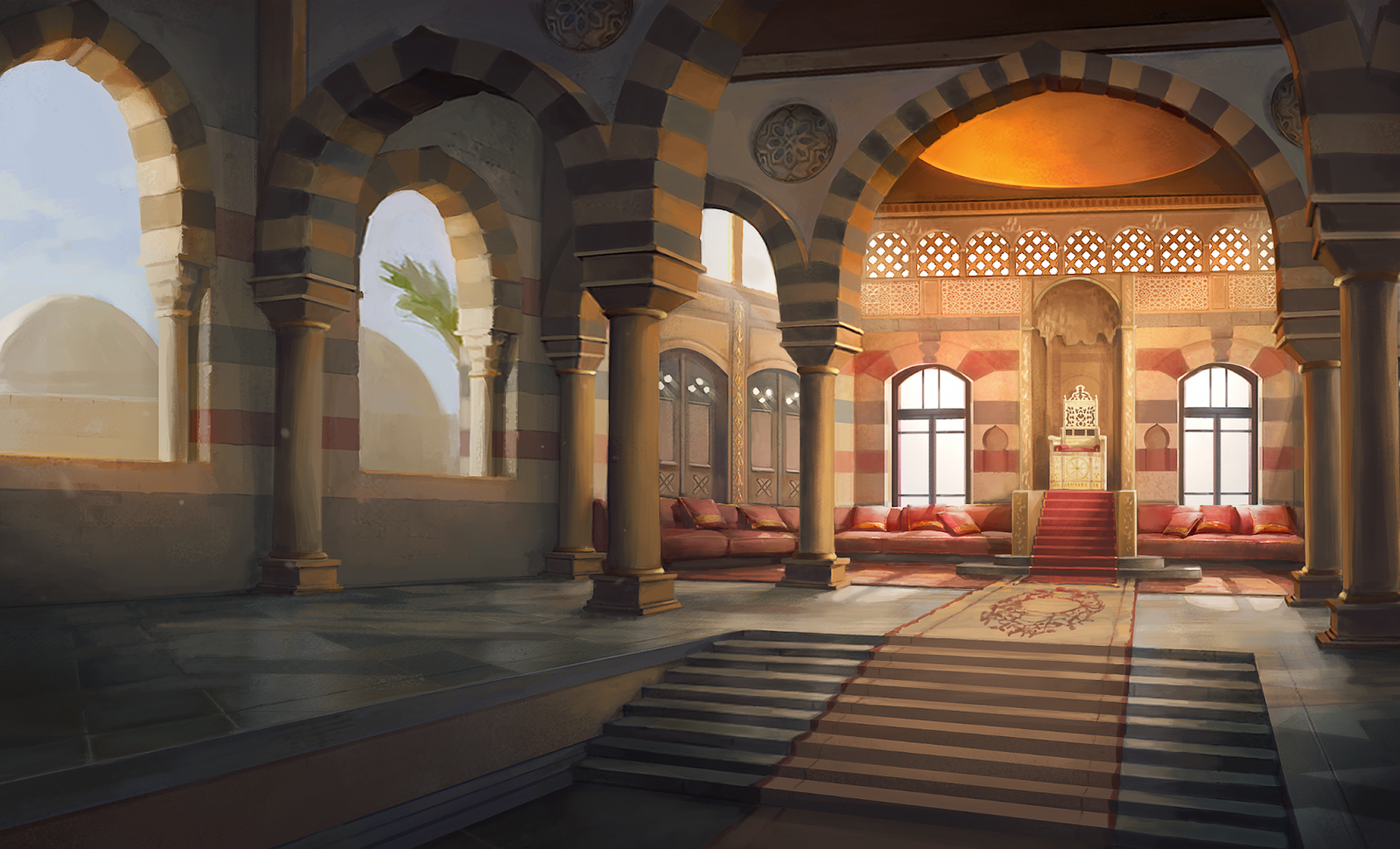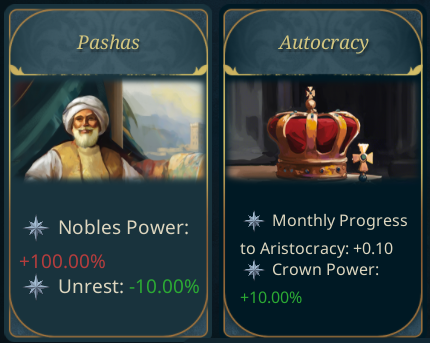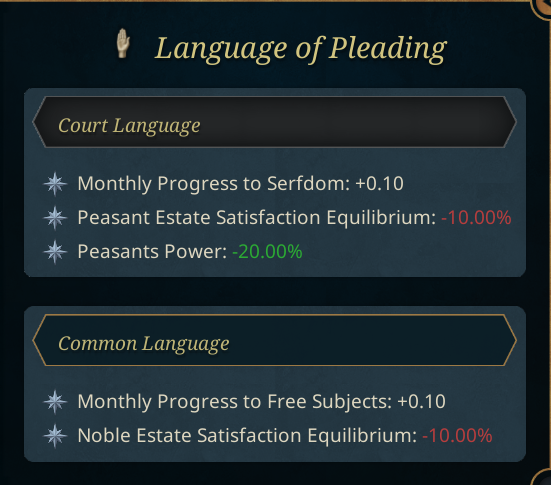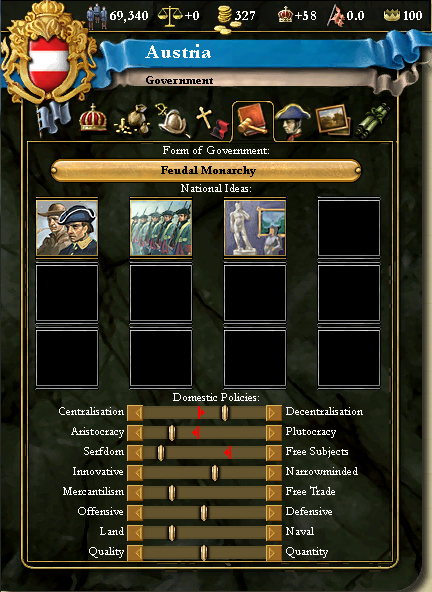Welcome to the fourth iteration of Tinto Talks!
Today we’ll give you an overview of the different mechanics of the Government part of the game. There will be development diaries going into much more detail for these later on.
First of all, we have 5 different government types in the game, which determines a fair bit of what type of mechanics you get access to. As an example, a Republic does not have access to royal marriages, and a Steppe Horde has a different view on how war, peace and conquest works compared to other types of countries.

An illustration from our game..
These, together with country rank, government reform, and local flavor gives countries names like “Crown of Aragon,” “Kingdom of Sweden,” “Principality of Wales.” Not all countries are countries that are based on owning locations on a map though; more on that in later development diaries.
Each country also has a ruler, or they may be in a regency, if there are no possible adult heirs.
One of the most defining parts of the government of a country in Project Caesar is the Estates mechanic. This has been one of the core parts of the game, with a full connection between the population and the estates. Keeping the estates satisfied while keeping their powers low is an important part of the gameplay loop. In this game, the Estates are also active entities and will do things on their own if they get enough power.

Two government reforms, one culture specific and one government specific.
As time passes, different government reforms and reform-slots will be available. They can also be based on tag, culture or religion.

These are the two available possibilities in the Law 'Language of Pleading' for the country I tested.
Something that is different from a reform is what we call a Law. A Law can have several different policies you can pick from, and several laws have unique policies only available to certain tags, religions, cultures, government types or other factors.
There are some drawbacks to adding new reforms or policies though, as it takes a few years for it to have full effect, depending on your country's administrative efficiency. (Yes, it's a name for something else in another game, but it fits here.)
Regularly, if your government allows it, you can call in a Parliament. If you don’t do it often enough the estates will start to get irritated, but each parliament has issues that need to be resolved, and the estates will have agendas they want done for their support. Of course, you also have options to push through what you want from a parliament, if you are willing to accept the demands of the estate, like changing a particular law.
Another part of the government is the cabinet, which also grows in size as you become more advanced, allowing you to do more things. This is something that can be viewed as a hybrid between EU4 Advisors and the CK2 council actions.
Some of you may remember the domestic policies from EU2 and EU3. In Project Caesar we are bringing the idea back in the form of Societal Values. There are seven that we took from these games, one that was split in two, and we added four new ones, bringing the total to 13 different Societal Values. Societal Values are primarily affected by what other actions you do, like what policies you pick in a law, or what reforms you pick. As with so many other things in our game, this is not an instant action, but a gradual change over time.

oh look, its eu3!
Next week, we will go into much more detail about estates and how they work.
Today we’ll give you an overview of the different mechanics of the Government part of the game. There will be development diaries going into much more detail for these later on.
First of all, we have 5 different government types in the game, which determines a fair bit of what type of mechanics you get access to. As an example, a Republic does not have access to royal marriages, and a Steppe Horde has a different view on how war, peace and conquest works compared to other types of countries.
- Monarchy, which uses Legitimacy
- Republic, which uses Republican Tradition
- Theocracy, which uses Devotion
- Steppe Horde, which Horde Unity
- Tribe, which uses Tribal Cohesion
An illustration from our game..
These, together with country rank, government reform, and local flavor gives countries names like “Crown of Aragon,” “Kingdom of Sweden,” “Principality of Wales.” Not all countries are countries that are based on owning locations on a map though; more on that in later development diaries.
Each country also has a ruler, or they may be in a regency, if there are no possible adult heirs.
One of the most defining parts of the government of a country in Project Caesar is the Estates mechanic. This has been one of the core parts of the game, with a full connection between the population and the estates. Keeping the estates satisfied while keeping their powers low is an important part of the gameplay loop. In this game, the Estates are also active entities and will do things on their own if they get enough power.
Two government reforms, one culture specific and one government specific.
As time passes, different government reforms and reform-slots will be available. They can also be based on tag, culture or religion.
These are the two available possibilities in the Law 'Language of Pleading' for the country I tested.
Something that is different from a reform is what we call a Law. A Law can have several different policies you can pick from, and several laws have unique policies only available to certain tags, religions, cultures, government types or other factors.
There are some drawbacks to adding new reforms or policies though, as it takes a few years for it to have full effect, depending on your country's administrative efficiency. (Yes, it's a name for something else in another game, but it fits here.)
Regularly, if your government allows it, you can call in a Parliament. If you don’t do it often enough the estates will start to get irritated, but each parliament has issues that need to be resolved, and the estates will have agendas they want done for their support. Of course, you also have options to push through what you want from a parliament, if you are willing to accept the demands of the estate, like changing a particular law.
Another part of the government is the cabinet, which also grows in size as you become more advanced, allowing you to do more things. This is something that can be viewed as a hybrid between EU4 Advisors and the CK2 council actions.
Some of you may remember the domestic policies from EU2 and EU3. In Project Caesar we are bringing the idea back in the form of Societal Values. There are seven that we took from these games, one that was split in two, and we added four new ones, bringing the total to 13 different Societal Values. Societal Values are primarily affected by what other actions you do, like what policies you pick in a law, or what reforms you pick. As with so many other things in our game, this is not an instant action, but a gradual change over time.
oh look, its eu3!
Next week, we will go into much more detail about estates and how they work.









